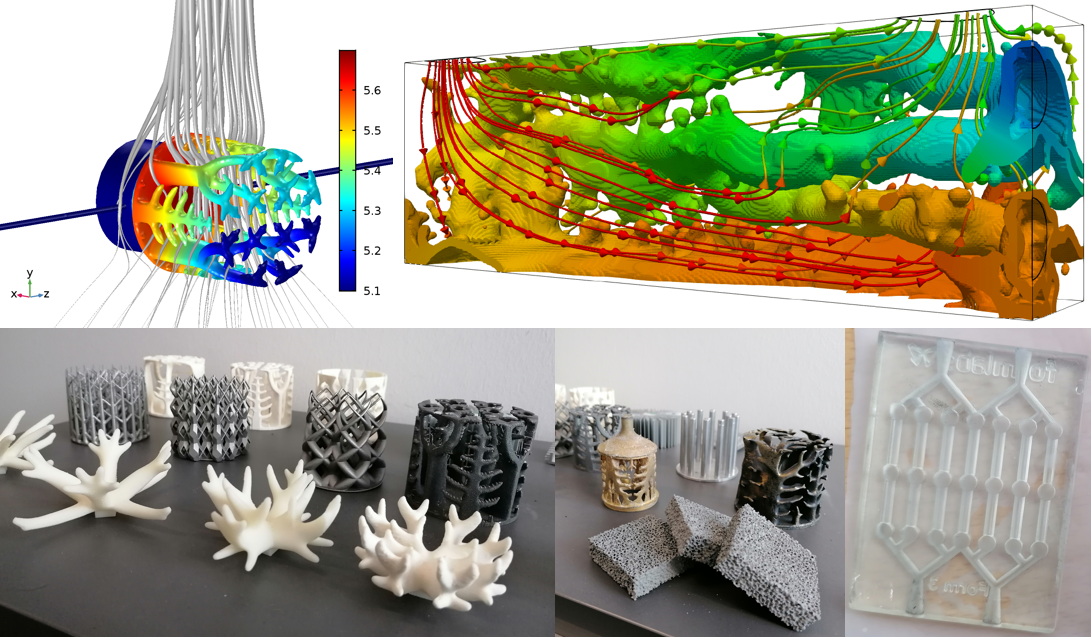This program has a fixed start and length (date and period follow ordinary SDU semester). One or two semesters starting either 1st of February or 1st of September.
Preferred student profile
Academic study field:
- M.Sc. in Mechanical/Aerospace Engineering
- M.Sc. in Applied Mathematics (computational methods)
Required knowledge:
- Basic mechanical engineering: fluid dynamics and/or heat transfer and/or thermomechanics
- Advanced knowledge of computational methods: finite element methods, linear and non-linear solvers
- Programming experience: C/C++ and/or MATLAB and/or python
Preferable knowledge:
- Advanced fluid dynamics and/or heat transfer and/or thermomechanics
- Constrained optimisation theory
- Structural optimisation (topology and/or shape)
Optional knowledge:
- Chemical reactions
- Micro-mechanical systems
Description
The research of the Multiphysics Simulation and Optimisation (MSO) research group spans a wide array of fields including advanced simulation methods, large scale parallel computing, and structural optimisation. The focus of the research is to contribute to the improvement of the efficiency of complex systems, aiming to help mitigate the increasing use of finite resources and decrease greenhouse gas emissions.
Special focus is placed on interactions between mechanical, thermal and fluidic fields, but other multiphysics problems are also relevant. Efficient computational tools are formulated and applied to simulation-based design of e.g. electronics cooling and thermal management, microfluidic devices, and metal casting processes. Research is also done to extend and apply structural optimisation to complex multiphysics problems, using either topology or shape optimisation.
Possible research topics include:
- Efficient computational methods:
- Advanced discretisation methods (FEM, DG-FEM, space-time formulations)
- Large scale computing and parallel programming
- Treatment of time-dependent systems
- Simplified physics and reduced-order models
- Extension of topology optimisation to:
- Transient and turbulent flow
- Transient heat transfer
- High speed jet cooling
- Process modelling:
- Investment casting
- Additive manufacturing
Possible applications include:
- Electronics cooling and heat sink design
- Heat exchanger design
- Conformal cooling channel design
- High heat flux cooling for fusion reactors
- Milli- and microfluidic devices
- Porous microreactors
- Fluid-structure-interaction
- Thermomechanics of thermal shielding components
